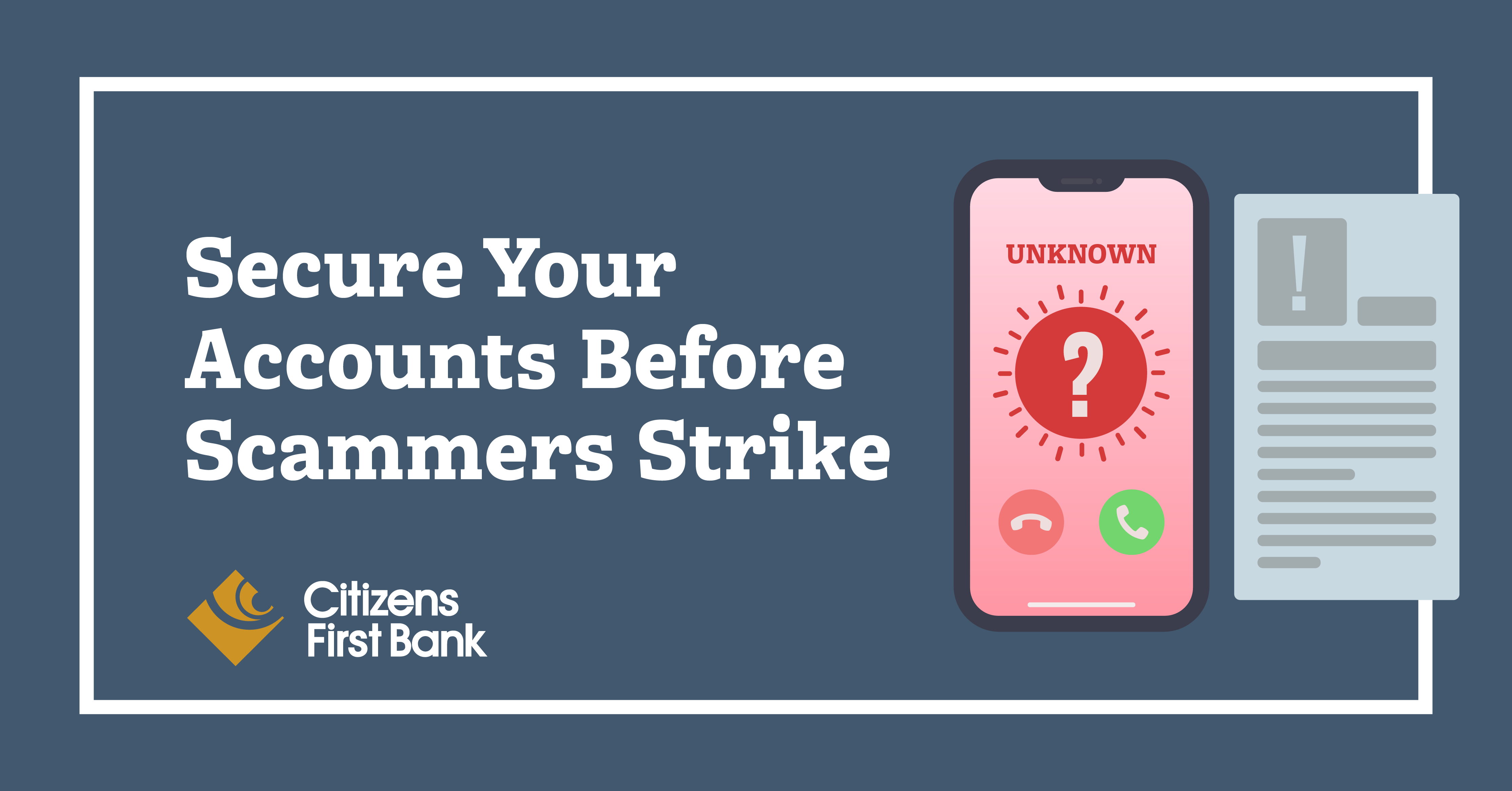
October 20, 2021
October is National Cybersecurity Awareness Month and Citizens First Bank is promoting the American Bankers Association’s #BanksNeverAskThat campaign to help educate consumers on phishing scams. Read on for tips to recognize phishing tactics and ways to secure your accounts.
Financial fraud is more common than you may think. In fact, the FBI reported in 2019 that Americans lost more than $57 million in phishing scams. However, by knowing what questions your bank will never ask you without a proper reason you can avoid putting your personal information in the wrong hands.
Phishing is an email, text, or phone scam that impersonates a legitimate company to request your passwords, social security number, or account number. To steal your information, these scams usually ask you to click on a link where you submit your personal details. These scams most often appear to be your bank, cell provider, or security company.
Banks will never address you with questions that have a sense of urgency and use scare tactics to ask for your information. Be able to recognize your bank’s primary website and be suspicious if a link in an email directs you to an unfamiliar website. Other signs of scams are bad grammar, typos, and unprofessional language.
Remember that banks will never ask you to repeat your account number or social security number without reason. Never submit your private information without establishing contact with your bank first. To avoid phishing over the phone, adjust your cell settings to silence suspected spam calls. Set up multifactor authentication on your bank login with a complex password for an extra level of protection.
Have questions about your bank account’s security? Visit your local Citizens First Bank in person or online for resources and advice on financial security. See www.banksneveraskthat.com for more resources to protect against phishing.